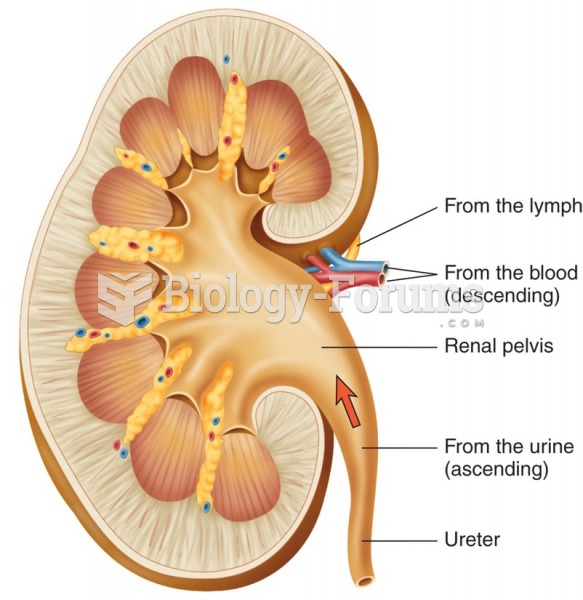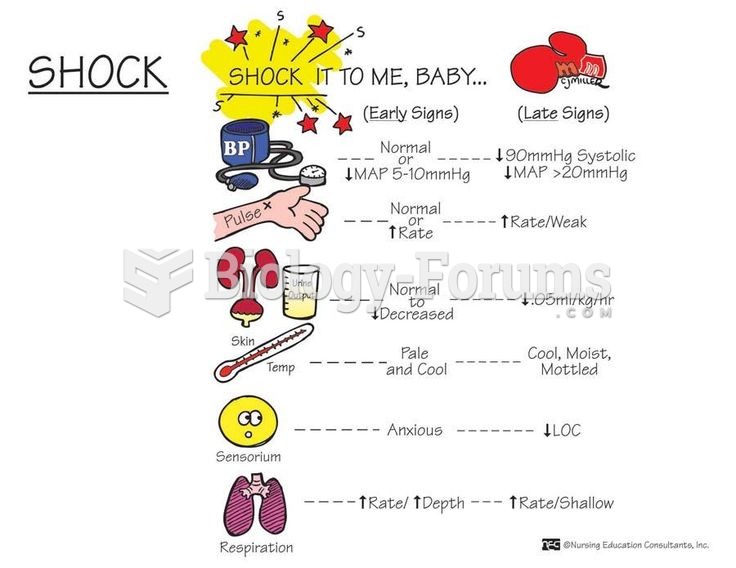Answer to Question 1
1
Rationale 1:A recent infection could indicate septic shock.
Rationale 2:Obvious trauma or bleeding combined with the symptoms mentioned previously would suggest hypovolemic shock.
Rationale 3: A history of heart disease would suggest cardiogenic shock.
Rationale 4:If trauma to the brain or spinal cord is evident, neurogenic shock might be suspected.
Global Rationale: Diagnosis of shock is rarely based on such nonspecific symptoms. A careful medical history, however, will provide the healthcare provider with valuable clues as to what type of shock might be present. For example, obvious trauma or bleeding combined with the symptoms mentioned previously would suggest hypovolemic shock. If trauma to the brain or spinal cord is evident, neurogenic shock might be suspected. A history of heart disease would suggest cardiogenic shock, whereas a recent infection could indicate septic shock. A history of allergy with a sudden onset of symptoms following food or drug intake might suggest anaphylaxis.
Answer to Question 2
1,2, 3, 4, 5
Rationale 1: Tightening of the throat with voice changes and the swelling of the larynx occur.
Rationale 2:Itching and hives are other responses of the allergic cascade.
Rationale 3: Normally, the body responds to an antigen by processes such as inflammation, antibody production, and activation of lymphocytes that rid the body of the foreign agent. Release of histamine and mast cells as well as itching and hives are all responses to the allergen.
Rationale 4:The body responds to an antigen by processes such as inflammation, antibody production, and activation of lymphocytes that rid the body of the foreign agent. Release of histamine and mast cells as well as itching and hives are all responses to the allergen.
Rationale 5:The body responds to an antigen by processes such as inflammation, antibody production, and activation of lymphocytes that rid the body of the foreign agent. Release of histamine and mast cells as well as itching and hives are all responses to the allergen.
Global Rationale: Following the exposure to an antigen, the body normally responds with actions such as inflammation, antibody production, and activation of lymphocytes that rid the body of the foreign substance. During anaphylaxis, the body responds quickly by releasing massive amounts of histamine and other inflammatory mediators. The patient may experience itching, hives, and a tightness in the throat or chest. Swelling occurs around the larynx, causing a hoarse voice and a nonproductive cough.







